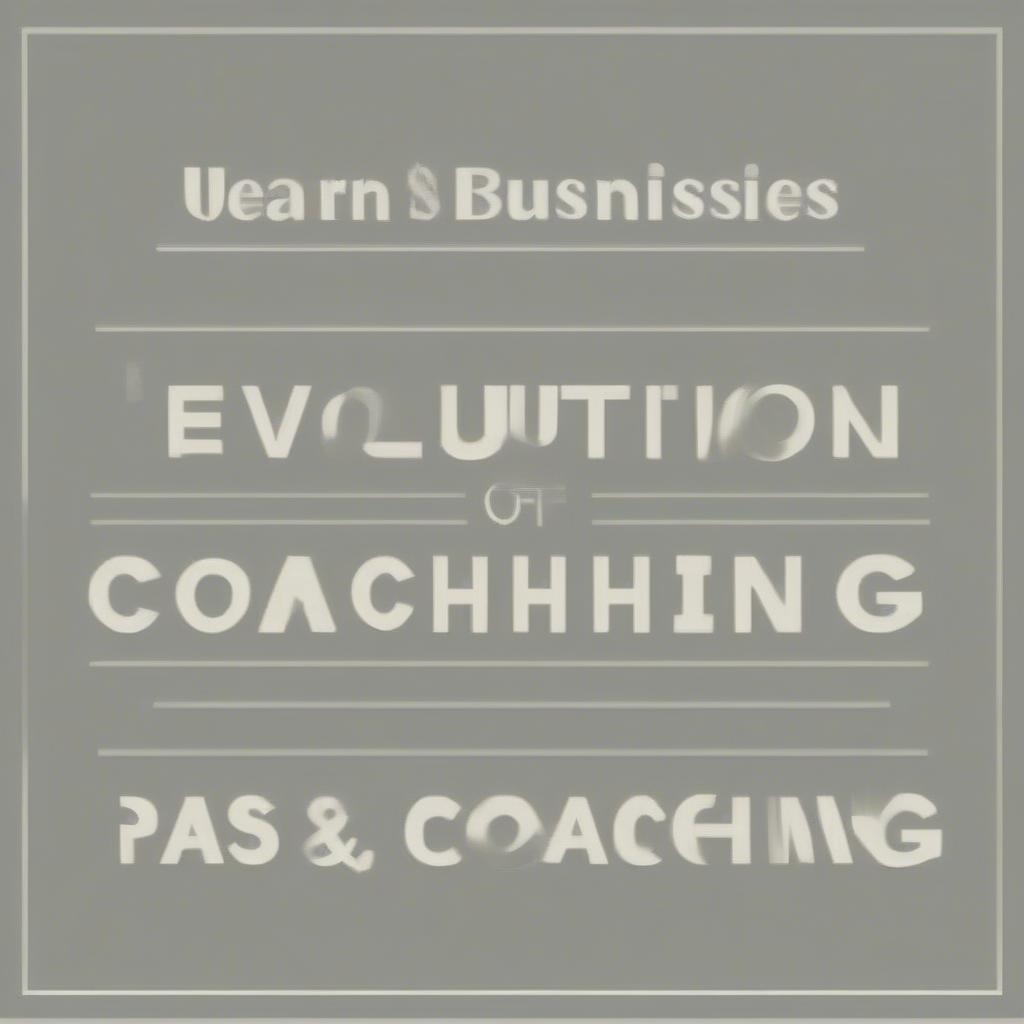
The Cornerstone of Successful Coaching: Why Trust and Rapport Matter
In the world of coaching, where transformation and growth are the goals, the relationship between coach and client is paramount. It’s not just about strategies and techniques; it’s about connection. Without a solid foundation of client trust and strong rapport building, even the most brilliant coaching methodologies will fall flat. Think of it like a building: without a strong foundation, even the most beautiful structure will crumble. This is why coaching relationships thrive on this vital combination.
Why Client Trust is Non-Negotiable
Client trust is the bedrock upon which all effective coaching is built. Why is it so crucial?
- Openness and Honesty: When clients trust you, they’re more likely to be open and honest about their challenges, fears, and goals. They’ll be willing to share their vulnerabilities, knowing they’re in a safe and non-judgmental space. This is crucial for identifying the root causes of their issues and paving the way for real progress.
- Willingness to Explore: Trust fosters a sense of safety, allowing clients to step outside their comfort zones and explore new perspectives and possibilities. They are more likely to embrace challenging questions and innovative approaches when they feel confident in your guidance.
- Commitment to the Process: Clients who trust you are more likely to commit to the coaching process, adhere to action plans, and persevere through setbacks. They believe in your ability to guide them, and this belief fuels their dedication.
- Achieving Meaningful Results: Ultimately, trust is a key ingredient for achieving meaningful and lasting results. When clients trust you, they’re more receptive to your insights and feedback, leading to greater personal and professional transformation.
Why Rapport Building Is Essential
While client trust is about confidence, rapport building is about connection. It’s the process of establishing a harmonious and understanding relationship with your client. Why is it so critical?
- Enhanced Communication: When rapport is established, communication flows effortlessly. Clients feel understood, validated, and respected. This creates a fertile ground for meaningful dialogue and effective coaching.
- Deeper Engagement: Rapport fuels engagement. Clients who feel connected to their coach are more invested in the coaching process, leading to greater participation and ultimately better outcomes.
- Increased Comfort and Safety: A strong rapport creates a comfortable and safe environment where clients feel empowered to be themselves. They are less likely to be guarded or resistant and more likely to actively participate in the journey.
- Long-Term Relationships: Building rapport paves the way for long-term coaching relationships. Clients who enjoy a strong connection are more likely to continue working with you and even refer you to others.
Building Blocks of Trust and Rapport: Practical Strategies
Now that we’ve established why coaching relationships benefit from client trust and rapport building, let’s delve into practical strategies you can use to cultivate these essential elements.
1. Active Listening: More Than Just Hearing
Active listening is the cornerstone of both client trust and rapport building. It’s not about just hearing the words someone says; it’s about understanding the meaning behind those words and demonstrating that you care.
How to practice active listening:
- Focus Your Attention: Put away distractions like your phone or computer. Give your client your undivided attention. Make eye contact and show that you are present.
- Listen to Understand: Don’t listen with the intent to respond; listen with the intent to understand. Try to grasp the client’s perspective, their feelings, and their needs.
- Reflect Back: Summarize and paraphrase what you’ve heard to ensure that you understand correctly. For example, "So, if I understand correctly, you’re saying…"
- Ask Clarifying Questions: Don’t assume you know everything. Ask open-ended questions to encourage the client to elaborate and explore their thoughts and feelings.
- Be Patient: Don’t interrupt. Let the client finish their thoughts without jumping in with your own. Be patient and allow for silence.
- Pay Attention to Body Language: Observe nonverbal cues like facial expressions, posture, and tone of voice. These can provide valuable insights into the client’s state.
- Empathize: Show that you understand and acknowledge the client’s feelings. Use phrases like, "That sounds challenging" or "I can see why you would feel that way."
2. Empathy: Walking in Your Client’s Shoes
Empathy is the ability to understand and share the feelings of another person. It is a powerful tool for building rapport building and strengthening coaching relationships.
How to show empathy:
- Acknowledge their feelings: When a client shares their emotions, validate them. For example, "It’s understandable that you feel frustrated in this situation."
- See the situation from their perspective: Try to imagine what it would be like to be in their shoes. Consider their background, experiences, and challenges.
- Don’t minimize their feelings: Avoid statements like, "It’s not that bad" or "You shouldn’t feel that way."
- Offer support: Let your client know that you are there for them. Use phrases like, "I’m here to support you" or "We’ll get through this together."
- Share relevant personal stories (with caution): Sharing your own experiences can help to create a connection but do it judiciously. Don’t make the session about you. The focus should always be on your client.
3. Authenticity: Being Your True Self
Authenticity is crucial for building client trust. Clients can sense when someone is being fake or trying to be someone they’re not. Be genuine and real.
How to be authentic:
- Be honest and transparent: Share your thoughts and opinions honestly, while maintaining a professional and ethical stance.
- Acknowledge your limitations: Don’t pretend to have all the answers. Be open about areas where you may not have expertise.
- Let your personality shine: Don’t be afraid to be yourself. Let your unique quirks and strengths show, but keep it professional.
- Be consistent: Your actions should align with your words. Consistency builds trust.
- Avoid trying to please everyone: It’s okay if not everyone resonates with you. Be true to yourself and attract the clients who are a good fit for your style.
4. Confidentiality: Creating a Safe Space
Confidentiality is a fundamental aspect of client trust. Clients need to know that what they share with you will remain private and protected.
How to ensure confidentiality:
- Clearly outline your confidentiality policy: Explain your policy to clients during the initial consultation.
- Keep records secure: Protect sensitive information both physically and digitally.
- Avoid sharing details with others: Never discuss client information with anyone, even friends or family.
- Be mindful of your environment: Be aware of your surroundings during coaching sessions and ensure privacy.
- Respect client boundaries: Don’t cross professional boundaries and always act with integrity.
5. Professionalism: Maintaining Boundaries
Professionalism establishes credibility and builds client trust within coaching relationships. While it’s important to connect with your clients, maintaining professional boundaries is essential.
How to maintain professionalism:
- Be punctual and prepared: Start and end sessions on time and come prepared with any materials needed.
- Establish clear expectations: Discuss your coaching process, policies, and boundaries at the beginning of your relationship.
- Dress professionally: Ensure that your appearance is appropriate for coaching sessions.
- Use professional language: Communicate clearly and respectfully and avoid using slang or jargon.
- Avoid dual relationships: Refrain from engaging in social or personal relationships with clients.
- Maintain your personal well-being: Taking care of your mental and emotional health allows you to fully support your clients.
6. Consistent Follow-Through: Demonstrating Reliability
Clients need to know that they can rely on you. Consistent follow-through builds client trust and reinforces your commitment to their progress.
How to demonstrate consistent follow-through:
- Keep your promises: If you say you’ll do something, make sure you do it.
- Follow up after sessions: Check in with your clients and see how they are progressing with their action plans.
- Provide timely feedback: Offer feedback and support promptly.
- Be proactive: Anticipate potential challenges and offer solutions or guidance.
- Be available: Respond to client inquiries promptly and maintain consistent communication.
7. Celebrate Successes: Building Momentum
Recognizing and celebrating your clients’ successes, no matter how small, builds rapport building and reinforces positive behavior.
How to celebrate successes:
- Acknowledge their achievements: Recognize and celebrate every milestone.
- Highlight their progress: Point out how far they’ve come.
- Focus on effort, not just results: Recognize and celebrate the effort that clients put into the process.
- Encourage them to share their wins: Empower them to be proud of their accomplishments.
- Be genuinely enthusiastic: Show that you are invested in their growth.
Key Differences Between Trust and Rapport
While they work in harmony, trust and rapport are distinct elements in coaching relationships.
- Trust focuses on a client’s belief in your credibility, integrity, and reliability. It’s the foundation of confidence they have in your abilities to guide them.
- Rapport centers around the connection and understanding you establish with your client. It’s the feeling of being comfortable and understood in your presence.
You can have trust without deep rapport, and vice versa. The ideal scenario, however, is when both are present. A client can trust your competence but might not feel a strong personal connection. Similarly, you can build a strong rapport with a client but they may still harbor doubts about your capabilities. Effective coaching strives to foster both elements equally.
Overcoming Challenges in Building Trust and Rapport
Building client trust and rapport building isn’t always seamless. There might be challenges, especially when working with clients who are initially resistant or skeptical.
Common Challenges:
- Resistance to Change: Clients might be hesitant or unwilling to step outside their comfort zone.
- Skepticism: Some clients may doubt your abilities or the effectiveness of coaching.
- Past Negative Experiences: Clients may have had bad experiences with coaches in the past, making them guarded.
- Different Communication Styles: You and your client might have different communication preferences which can make connecting more challenging.
- Time Constraints: It might be challenging to establish a strong connection if you are under significant time pressure.
How to Overcome These Challenges:
- Patience and Persistence: Building trust takes time and effort. Be patient and persistent.
- Empathy and Understanding: Put yourself in the client’s shoes and try to understand their perspective.
- Focus on Building a Safe Space: Create an environment where the client feels safe to be vulnerable and express themselves.
- Be Flexible and Adaptable: Adjust your approach to accommodate your client’s needs and preferences.
- Communicate Openly: Encourage the client to share their concerns and address them openly and honestly.
- Celebrate Small Wins: Focus on small milestones to build momentum and foster confidence.
- Continuous Learning: Stay updated with best practices and refine your skills for building effective coaching relationships.
The Power of Templates: A Resource to Facilitate Rapport
Using templates can provide structure and consistency to your coaching sessions while also making the process smoother and more engaging for both you and your client. Here are a few examples:
- Session Agenda Template: This template ensures consistency and keeps sessions focused. A typical agenda could include:
- Check-in (How are you doing since our last session?)
- Review of Previous Action Items
- Focus on the Specific Topic
- Action Items for the Next Session
- Wrap-up and Feedback
- Goal Setting Template: Help your clients set SMART (Specific, Measurable, Achievable, Relevant, Time-bound) goals and track their progress over time.
- Action Plan Template: Outline the specific steps clients will take between sessions. This helps maintain accountability and progress.
- Feedback Form: Use a form at the end of each session to gather feedback on your coaching approach and your client’s experience. This is invaluable for improving your skills and tailoring your approach.
- Client Intake Form: Gather essential information about your client’s background, goals, and needs. This will help you tailor your coaching sessions to their unique circumstances.
- Progress Tracking Template: Track your client’s progress toward their goals over time. This serves as tangible evidence of progress and helps build trust and motivation.
Learn Business: Your Partner in Building Successful Coaching Relationships
At Learn Business, we understand the importance of building robust coaching relationships. That’s why we offer a range of resources, templates, and guidance specifically tailored to support you and your clients. Our aim is to empower coaches to create meaningful connections, build client trust, and foster strong rapport building, which are essential for successful coaching. We understand that your success is intertwined with the success of your clients and we’re committed to helping you build coaching relationships that are effective, impactful and enduring. We achieve this by:
- Providing customized templates: Our templates are specifically designed to facilitate various aspects of coaching from session structure to action planning and goal setting.
- Delivering high quality resources: Learn Business offers you access to curated guides, articles, and workshops focused on best practices for building trust and rapport.
- Offering dedicated support: We assist you by offering guidance and support to help overcome any challenges in building trust and rapport.
- Providing a collaborative environment: We encourage a sense of community with fellow coaches so that experiences and best practices can be shared.
Learn Business empowers you to focus on what you do best: coaching. We take care of the nitty-gritty, so you can nurture relationships and transform lives.
Final Thoughts: The Ongoing Journey of Building Connection
Building client trust and rapport building isn’t a one-time event; it’s an ongoing process that requires continuous effort and self-reflection. It’s a journey of deep connection, mutual understanding, and unwavering support. By implementing the strategies we’ve discussed and using the resources at your disposal, you can create powerful coaching relationships that help your clients achieve their goals and reach their full potential. Remember that every interaction is an opportunity to strengthen your connection with your clients and reinforce the foundation of trust and understanding upon which successful coaching thrives. When you prioritize trust and rapport you are not just being a coach; you are becoming a catalyst for growth and transformation.



Leave a Reply